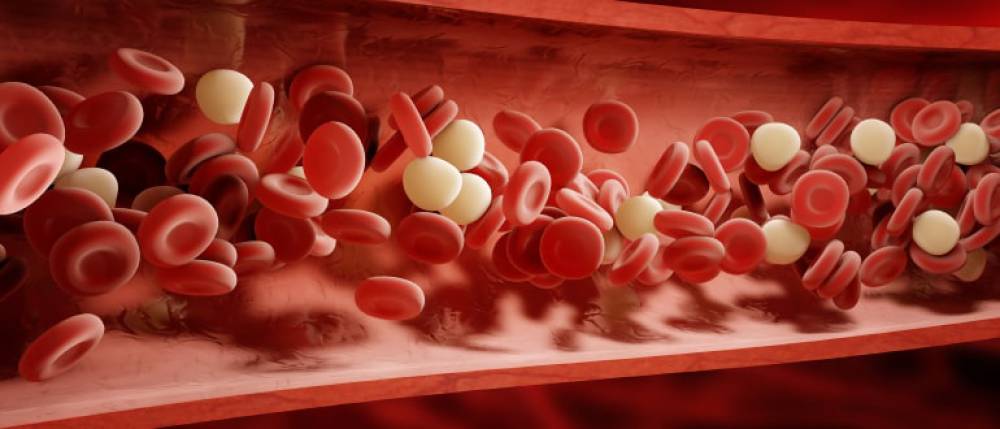Subscribe to get weekly insights
Always stay up to date with our newest articles sent direct to your inbox
Published on 19 Dec, 2022
Updated on 23 Mar, 2025
5110 Views
3 min Read

Written by Care Health Insurance
favorite2Likes
Did you know your blood circulation impacts every cell of your body?
Out of all bodily functions, blood circulation is one essential function that keeps you up and about. Blood flows through the heart and moves to other body parts to help them function normally. However, weak blood circulation harms the heart, kidneys and other organs and may become fatal if ignored and untreated. It also affects your immune system as blood cells from your bloodstream help fight infections and keeps your immunity in check.
If your blood circulation is up to par, you are less likely to suffer any sickness, numbness, bloating, or decreased energy. In this article, we have got you the causes and ways to boost blood circulation to lead a healthy life.
By knowing the root causes of an illness, you can avoid the repercussion and take proper precautions beforehand. Here are the causes of poor blood circulation that can lead to severe health issues:
Blood clots can occur anywhere in your body and block blood flow completely or partially. Clots that develop around your legs and arms can directly lead to circulation problems. They can develop for many reasons and could also be fatal if not controlled in time.
Deep Vein Thrombosis (DVT) results in a clot that develops in veins deep in the body, mostly in the leg and can pass through other body parts if the clot breaks away. This may result in a heart attack, pulmonary embolism or heart attack.
If you are experiencing high blood pressure constantly, there are chances that your nerves and blood vessels are damaged, directly affecting circulation all across your body, including feet, arms and legs and hands.
If you notice that the healing of wounds is slowing down, pain or cramping, cold or numb feet or hands, brittle nails, etc., see a doctor immediately, as these could be alarming poor blood circulation symptoms. However, people with advanced diabetes may not experience the signs of poor blood circulation because diabetic neuropathy can reduce sensation in extreme cases.
>> Also Check: Health Insurance for Diabetes
Varicose veins become enlarged, dilated, and overfilled with blood. They are also known as varicoses or varicosities. These veins are usually swollen and are bluish-purple or red. They are often painful; in most cases, these veins appear on the lower side of the legs.
Potential Reasons for Varicose Veins include:
In this condition, narrowed arteries reduce blood flow to the arms and legs. Usually, the legs don't get enough blood to keep up with the flow, which may result in pain in the leg while walking and other symptoms.
Peripheral artery disease symptoms may include:
Every condition that leads to poor circulation can cause unusual symptoms as well. However, some common symptoms could be alarming for low blood circulation. The most common symptoms are:
Circulatory problems vary from individual to individual, Read on to know the treatment for low blood circulation that could help you boost your blood circulation:
These practices are essential for cardiovascular health. You can also consult your health practitioner, who can recommend more effective ways to combine with medication. Ensure you always follow the doctor’s advice for circulatory problems and their underlying causes.
*Always prefer to consult a doctor before taking a supplement because some supplements can interfere with the actions of other drugs.
If blood does not circulate properly, fluid can build up over time. This fluid accumulation is known as "oedema". It can be an early sign of heart failure because the heart cannot circulate enough blood to keep the body running. Boosting your blood circulation is essential to living a comfortable and healthy lifestyle. If you think you may be experiencing poor circulation or other heart concerns, make sure you keep yourself financially secure with the help of comprehensive heart insurance. Care Health Insurance’s Care Heart Plan will ensure you are covered for incurred medical expenses during an emergency related to a heart condition.
Disclaimer: The information mentioned above is for reference purposes only.
शुगर कंट्रोल कैसे करे? जानें, डायबिटीज में क्या खाना चाहिए Care Health Insurance in Health & Wellness
Thyroid : मामूली नहीं हैं महिलाओं में थायराइड होना, जानें इसके लक्षण और घरेलू उपचार Care Health Insurance in Diseases
हाई ब्लड प्रेशर को तुरंत कंट्रोल कैसे करें? देखें इसके उपाय Care Health Insurance in Diseases
प्लेटलेट्स की कमी के लक्षण, कारण और इलाज क्या है Care Health Insurance in Diseases
Dehydration: What Your Body's Trying to Tell You Care Health Insurance in Health & Wellness
Breaking Down Neurosis vs Psychosis—Meaning, Differences, & More Care Health Insurance in Mental Health
Is Black Pepper Good for You? 11 Health Benefits of Fiery Spice! Care Health Insurance in Diet & Nutrition
What is IBS? Signs, Triggers & Solutions that Work Care Health Insurance in Diseases